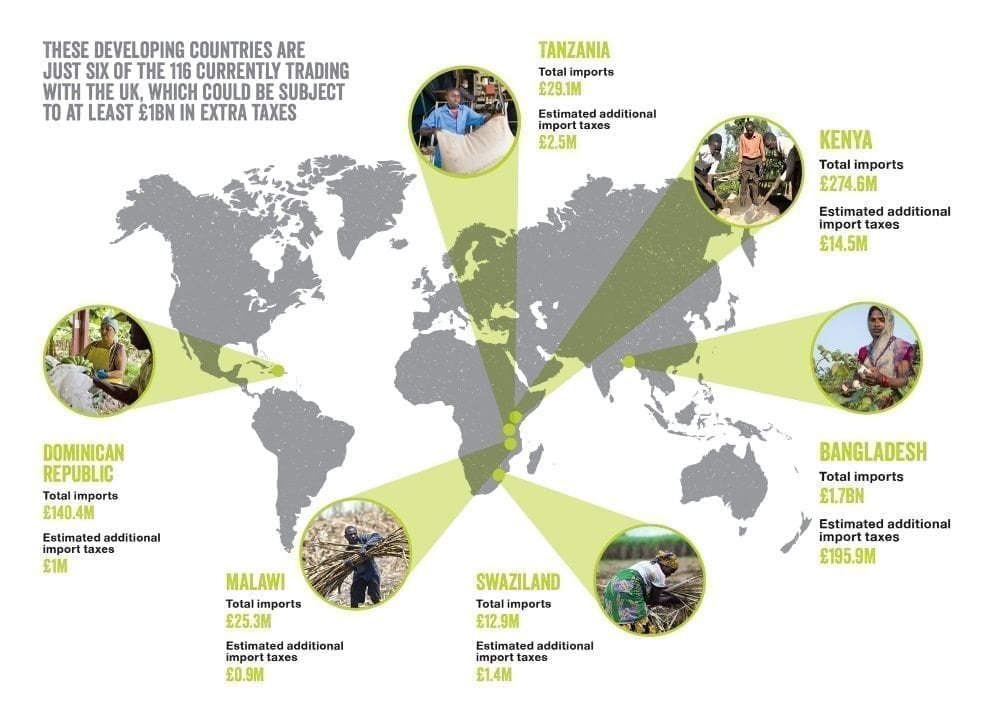
Changing trade
The government’s ambition to become ‘a great global trading nation’ is a once in a lifetime opportunity to deliver truly fair trade which backs the UK’s promises to end poverty and inequality.
Last month, in a parliamentary debate, International Trade Secretary Liam Fox MP welcomed the Fairtrade Foundation and Traidcraft’s new campaign and agreed with the importance of fair prices, wages, and sustainable practices for farmers and workers.
The UK governments now being encouraged to act to make 2017 the year when trade is changed for good.
Report recommendations to government
- Do no harm: Poor people in economically vulnerable countries must not find themselves paying new import duties on sales to the UK
- Act quickly: Reassure economically vulnerable countries with an immediate offer of non-reciprocal preferential access to the UK market
- Look ahead: Study the impact of planned trade deals with wealthier countries carefully to make sure that they don’t undermine poorer countries
- Go further: Make it easier for developing countries to sell higher value products to the UK, and put in place trade policies to tackle poverty in line with the UK promise to deliver the SDGs
- Use aid and investment well: Make sure that UK aid and investment helps the poor and vulnerable to benefit from trade
The Fairtrade Mark
The Fairtrade Mark is an independent consumer label that appears on products to show that disadvantaged producers are getting a better deal from trade. Today, more than 1.65 million people – farmers and workers – across more than 76 developing countries benefit from the international Fairtrade system.
Over 5,000 products have been licensed to carry the Fairtrade Mark in the UK including coffee, tea, herbal teas, chocolate, cocoa, sugar, bananas, dried fruit, juices, smoothies, biscuits, cakes & snacks, honey, jams & preserves, chutney, rice, quinoa, herbs & spices, seeds, nuts, wines, ales, rum, muesli, cereal bars, ice cream, flowers, sports balls, homeware, cotton wool, olive oil, gold, silver and platinum.
Click here to read the full report, ‘Brexit: Let’s change trade for good’.
 Play Video about This Rock Might Just Save The World
Play Video about This Rock Might Just Save The World Play Video about Play 2 hours of rock
Play Video about Play 2 hours of rock Play Video about Play 2 hours of brook
Play Video about Play 2 hours of brook Play Video about Play 2 hours of sheep
Play Video about Play 2 hours of sheep












































